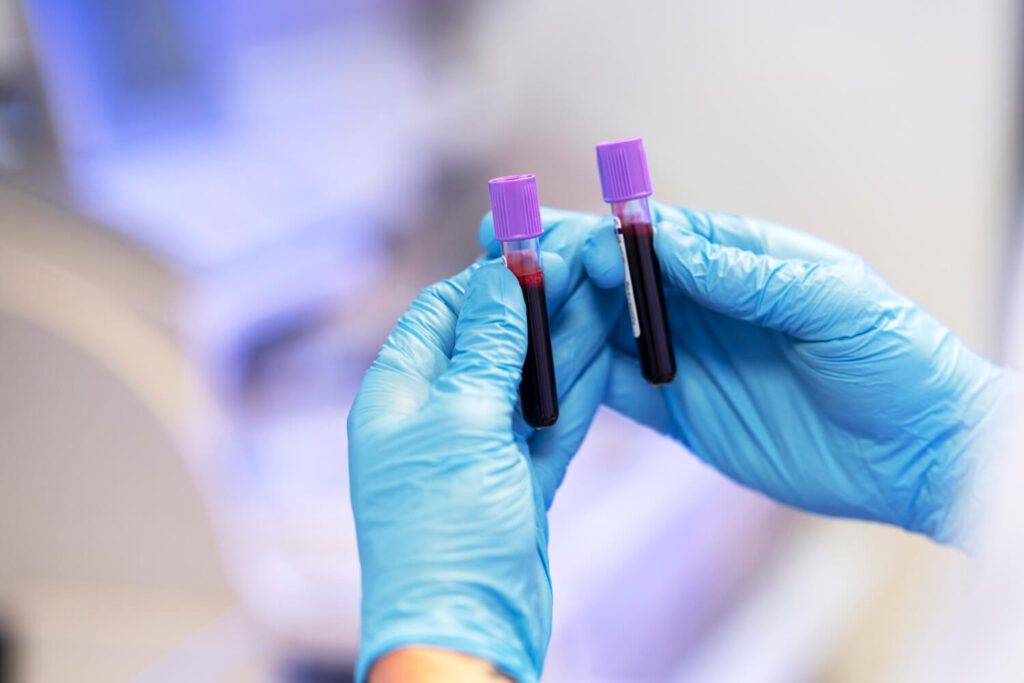Viral conditions are known to have a detrimental effect on one’s body. It can affect the overall health, leading to progression of health conditions, and even fatalities when not addressed immediately. That’s why it is important to have a way of monitoring one’s health, just like undergoing a screening test, which a hepatitis B test can provide.
Hepatitis B virus is one of the known problems that people face as it affects liver health. This virus can progress to cirrhosis of the liver. That means the organ is damaged and will soon be not functional for the body. Before that happens, the patients must be proactive about one’s health, which can only happen through early detection.
In this blog, we’ll cover the importance of screening for HBV or a hepatitis b test. Learn how it can help a patient achieve a healthier liver. At the same time, discover when and where the patients can undergo this procedure. Let’s begin!
What Is Hepatitis B Test

A Hepatitis B test, also known as an HBV test, is a diagnostic tool used to determine the presence of the Hepatitis B virus in the body. The test measures the levels of various markers and antibodies associated with the virus to detect the infection and assess its severity.
The two primary markers used in Hepatitis B testing are HBsAg and Anti-HBc. HBsAg (Hepatitis B surface antigen) is a protein present on the surface of the Hepatitis B virus. Its presence in the blood indicates an active infection with the virus. Anti-HBc (Hepatitis B core antibody) is an antibody produced by the body in response to the Hepatitis B virus. The presence of Anti-HBc indicates a previous or ongoing infection.
Other markers and antibodies, such as HBeAg (Hepatitis B e antigen), Anti-HBe (Hepatitis B e antibody), and Anti-HBs (Hepatitis B surface antibody), may also be tested to provide additional information about the Hepatitis B infection.
Regular Hepatitis B testing is crucial, especially for individuals at an increased risk of infection. Early detection of Hepatitis B allows for timely medical intervention and appropriate management of the condition. It also helps in preventing the spread of the virus to others.
Why Is HBV Screening Crucial
HBV screening is crucial for several reasons. Firstly, Hepatitis B is a silent disease, meaning that individuals infected with the virus may not experience any symptoms for many years. Without regular screening, the infection may go undetected and progress to chronic liver disease, liver cirrhosis, or liver cancer.
Secondly, early detection of Hepatitis B allows for early medical intervention and appropriate management of the condition. Treatment options are available that can help slow down the progression of the disease and reduce the risk of complications.
Lastly, HBV screening is important for preventing the spread of the virus to others. By identifying individuals with Hepatitis B, appropriate measures can be taken to prevent transmission, such as vaccination of close contacts and safe practices to reduce the risk of exposure.
Where to Go for A Test Screening

There are several healthcare facilities that offer these services. These facilities are equipped with the necessary resources and expertise to perform Hepatitis B testing and provide accurate results. To undergo a hepatitis b test, individuals must first seek a consultation with a health doctor.
Individuals can secure and schedule their appointment with a hepatologist either through online platforms or at a local health center. During the scheduled consultation, the doctor will request some procedures, and hepatitis b test screening can be one of them.
Although, when choosing a healthcare facility for Hepatitis B testing, it is important to consider factors such as the facility’s reputation, experience in performing Hepatitis B tests, and the availability of trained healthcare professionals. It is also advisable to check if the facility follows proper protocols and has a good track record in delivering reliable results.
Types of Hepatitis B Tests Available
There are several types of Hepatitis B tests available to detect and monitor the Hepatitis B virus. These tests can help detect if the patient is infected or not. Let’s discuss each of them below!
HBsAg Test
HBsAg test is a hepatitis B test for detecting the presence of the Hepatitis B surface antigen (HBsAg) in the blood. The HBsAg is a protein present on the surface of the Hepatitis B virus and is one of the first markers to appear during an acute Hepatitis B infection.
This test involves using a blood sample. The sample is analyzed in a laboratory using techniques such as polymerase chain reaction (PCR) or enzyme immunoassay (EIA). Using this test, the health expert can indicate whether a person has Hepatitis B virus, whether they have cleared the infection, or whether they are a chronic carrier of the virus.
Take note that a positive HBsAg test result indicates the presence of the Hepatitis B virus in the blood and confirms an active infection. Further testing is a must to assess the severity of the infection and determine the appropriate course of treatment.
Anti-HBc Test
On the other hand, the Anti-HBc test, also known as the Hepatitis B core antibody test, is a diagnostic test for detecting the presence of the Hepatitis B core antibody (Anti-HBc) in the blood. The Anti-HBc is an antibody produced by the body in response to the Hepatitis B virus.
This hepatitis b test typically uses a blood sample. The sample is analyzed in a laboratory using techniques such as enzyme immunoassay (EIA) or chemiluminescent immunoassay (CLIA). Test results can indicate whether a person has been previously exposed to the Hepatitis B virus, whether they have cleared the hbv infection, or whether they are a chronic hepatitis B carrier of the virus.
A positive Anti-HBc test result indicates previous or ongoing Hepatitis B infection. Further testing may be needed to determine the current status of the infection and assess the need for treatment or monitoring.
Liver Enzyme Tests
Another hepatitis B test involves liver enzyme tests. It includes alanine aminotransferase (ALT) and aspartate aminotransferase (AST), which play a crucial role in the detection and monitoring of hepatitis B virus infection.
When the liver is damaged or inflamed, it releases higher levels of these enzymes into the bloodstream. Elevated levels of ALT and AST in the blood can indicate liver cell damage and help in the diagnosis of Hepatitis B.
Preparing for Your Hepatitis B Test

Preparing for a Hepatitis B test involves a few simple steps to ensure accurate and reliable results. Here are some guidelines to follow before undergoing a Hepatitis B test:
Before the Test
Before undergoing a hepatitis B test, it is important to inform your healthcare provider about any medications or supplements you are taking. Some medications, such as antiviral drugs, can affect the test results. Thus it is important to discontinue their usage before the test.
During the Test
During the hepatitis B test, a healthcare professional will collect a blood sample from your arm. The expert will collect a blood sample. You may experience a slight pinch or prick during the insertion of the needle. Once the sample is available, the expert will not test it in a laboratory. Thus, allowing to detect the presence of the Hepatitis B virus and assess its severity.
Interpreting Your Hepatitis B Test Results
Interpreting Hepatitis B test results can be complex and requires the expertise of a healthcare professional. The results are based on various markers and antibodies associated with the Hepatitis B virus and can provide valuable information about the infection.
There are two interpretations of the result, positive and negative. Let’s understand how each can affect one’s health.
Understanding Positive Results
A positive result of the hbv test indicates the presence of the virus, confirming an active infection. This means that the individual is currently infected with the Hepatitis B virus and is capable of transmitting the infection to others.
Further testing may be required to assess the severity of the infection and determine the appropriate course of treatment. This may include additional blood tests to measure liver enzyme levels and viral load, as well as imaging tests to evaluate the condition of the liver.
It is important for individuals with a positive Hepatitis B test result to seek medical attention and follow the recommended treatment plan. Antiviral medications may be prescribed to manage the infection and prevent complications such as liver cirrhosis or liver cancer.
What Does a Negative Result Mean?
Meanwhile, a negative result of the hepatitis b test indicates the absence of the virus, suggesting that the individual is not currently infected with the Hepatitis B virus. However, a negative result does not provide immunity against future infections or guarantee protection from the virus.
It is important for individuals with a negative Hepatitis B test result to consider vaccination, especially if they are at an increased risk of exposure. Vaccination is an effective preventive measure against Hepatitis B and can provide long-term protection.
Regular testing and vaccination are recommended for individuals at an increased risk of Hepatitis B. These group of people are those with multiple sexual partners, individuals who inject drugs, or individuals with close contact with infected persons. It is important to discuss the appropriate preventive measures with a healthcare professional to ensure optimal protection against Hepatitis B.
Conclusion
Monitoring one’s health is a must, especially if it involves chronic illnesses like hepatitis B. Fortunately, with the available screening centers, individuals won’t have a hard time checking their condition. Hepatitis B test is an assessment procedure that can help individuals to check if they are infected with this viral infection. Thus, allowing early detection, and treatment as well
Do you think you might be suffering from this contagious illness? Find out if you have developed hepatitis B through a consultation.
Book an online consultation with a hepatologist or visit a local health center today!
Hepatitis B Knowledge Quiz
Test your understanding of Hepatitis B testing and prevention
You scored out of 5



